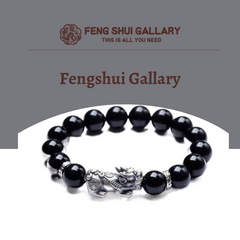Fengshui, why you should you care?
People turn to feng shui for all sorts of reasons — to find their life mate, attract wealth, improve health or get the winning lottery ticket. Does all this confusion mean that feng shui is a new age fad with no power? I mean, if feng shui were a serious science and art, why there is so much confusion and contradiction about it?
Starting with the two baguas (why there are two baguas in feng shui and which one is better?) to very different answers you’ll get to the same question; I understand why feng shui is often equated to a new age distraction and something a serious person would not even look into. However, here is the thing — serious people do look into it, and they do get results. I have many clients who are anything but new age junkies and they achieved great results by applying feng shui.
Here are the good feng shui home decor products Rodika recommends for your home, bedroom, kitchen, bathroom and more!
So what is feng shui and why is it so difficult to understand it? Well, for one, feng shui is a very, very old art and science. Its history goes back thousands of years. That is really, really old, which means really, really easy to misinterpret. Because feng shui is such an ancient body of knowledge, it has also been fully “steeped” in cultural stereotypes. This makes it very important to distinguish between the culturally specific expressions of energy and the very essence of any given form of energy.
For example, when I think of a lifelong love partnership, I can come up with many images, none of them being the Mandarin ducks (the traditional feng shui representation of love & marriage). This is because I have no cultural or emotional connections to this image. However, for many Chinese people, the image of Mandarin ducks will genuinely speak of devoted love because there is strong cultural lore connected to this image. This means that approaching feng shui in an intelligent way and with a good dose of healthy discrimination is the cornerstone of successful feng shui work.
Feng shui is part of the complex Taoist body of knowledge that includes the field of traditional Chinese medicine (acupuncture, use of herbs, etc), energy work such as Qi Gong, Tai Chi; Chinese astrology and other disciplines from the wide field of philosophical knowledge related to the I Ching, Tao Te Ching and other ancient Taoist works.
In itself, feng shui is composed of many schools. It started with the Landscape School (which studies the landforms and their influence on human health and well-being) and then branched out into many different schools — the Flying Star (Xuan Kong), the Eight Mansions (East/West), the Four Pillars (Ba Zhi), and other schools. Basically, various feng shui schools deal with either the time or the space dimensions (or both). The youngest feng shui school is the Western school based on the BTB (Black Sect Tibetan Tantric Buddhism) school of feng shui brought to the USA in mid-eighties.
History aside (if you are curious, you can read my articles on how feng shui started) – what is feng shui in a nutshell and why should you care? Let’s stay with this question for a bit. Feng shui is, first and foremost, energy work. The most accurate definition of feng shui is of feng shui as acupuncture of the space. Feng shui opens up powerful energy channels in your home to help it get stronger, more harmonious and powerful. This, in turns, nourishes and strengthens your own energy.
Ancient feng shui masters knew what quantum physics is telling us today — that everything around us is composed of endless energy fields connecting everything you see, feel and touch (as well as millions of things we do not see with our physical eyes). There is really no separation between you and everything that surrounds you, and this, of course, includes your home.
This means that if you want to stay healthy, happy, enjoy love and success, your space has to support and nourish this energy. It has to be well suited for your personal energy, as well as the energy you want to attract and cultivate. Just like being in a company of a happy person makes your own energy happy, the same happens with your living (or working) space. If your space has good feng shui vibes — healthy, uplifting, loving and nourishing, you will feel supported and happy. Everything will flow easier for you just because this is the energy you are surrounded by and nourished most often.
You can compare a good feng shui house to a piece of clothing that is really wonderful in all aspects — it is beautiful, comfortable, made of exquisite materials, etc. By the same token, a bad feng shui house is like wearing ill-suited clothing day in, day out, imagine how this feels! It definitely makes you feel restricted, unhappy, angry, and your energy becomes stagnant and blocked. The reason I use the example with clothing is because your home is often called the third skin in feng shui, with clothing being your second skin.
Of course, it is much easier to see this dynamic in the example with clothing than it is to see it with your living or working spaces! A house can look beautiful and have really awful feng shui; and a house can also look quite modest and at the same time have very harmonious and healthy feng shui energy.
So then the next question is — how can you know if your house has good or bad feng shui? And how can you create a really good feng shui house for yourself and your family? Let’s start by getting to know the feng shui map of your home called bagua, as well as understand what makes good feng shui decorating.


